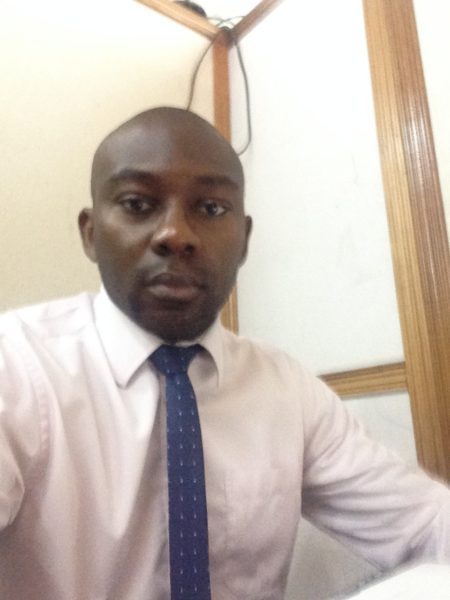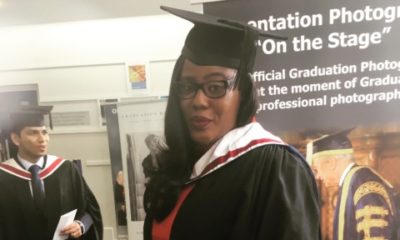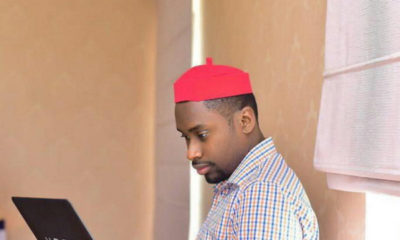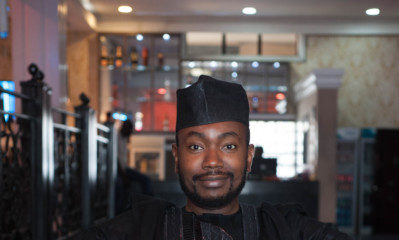Career
Move Back To Nigeria: Tamunoemi Oyibo Says “Go With Your Gut!” As He Shares His Move Back Story
 Move Back to Nigeria is a series on BellaNaija which aims to encourage young and not-so-young professionals in the diaspora who are trying to make the decision of whether to move back to Nigeria. In collaboration with the brilliant team at MoveBackToNigeria.com, we hope to bring you a weekly interview with individuals who have successfully made the leap, considering the leap, as well as those who have tried it and realized it is not for them. MoveBacktoNigeria.com’s mission is to showcase stories of Nigerians abroad who have moved back home and are taking giant strides, often against all odds and to serve as inspiration to others.
Move Back to Nigeria is a series on BellaNaija which aims to encourage young and not-so-young professionals in the diaspora who are trying to make the decision of whether to move back to Nigeria. In collaboration with the brilliant team at MoveBackToNigeria.com, we hope to bring you a weekly interview with individuals who have successfully made the leap, considering the leap, as well as those who have tried it and realized it is not for them. MoveBacktoNigeria.com’s mission is to showcase stories of Nigerians abroad who have moved back home and are taking giant strides, often against all odds and to serve as inspiration to others.
This, however, does not preclude us from sharing stories of the people who have moved back and are facing various challenges.
Emi Oyibo is our special feature for the week. His background and business incursion into clean technology make for interesting and stimulating reading, particularly with Nigeria as the core focus. Read on for more on his unique story in his own words.
Thanks for taking the time to speak to us. Can you please introduce yourself and tell us what you do?
My name is Tamunoemi Oyibo. I am an entrepreneur and founder of Tecology Energy limited based in London, UK and specialising in clean technology design and consultancy.
Can you please take us through your educational background?
I studied chemistry at the University of Sheffield and graduated in 2006, after which I had a couple of jobs in London and then decided to do a Masters in Business. For this, I went to Grenoble Ecole de Management (the course was split between London and Grenoble France) and spent two years there – which was a very worthwhile experience.
So what came after that?
I went on to do an internship with the company I previously worked with called Interactive Pro limited. After this, I got offered a full time job there. I declined as I had decided to start up my own firm.
You had been bitten by the entrepreneurial bug?
It was combination of that and timing. This was just after the financial crisis hit and truthfully, it was a reflection of my idealistic nature. It turned out to be very challenging timing.
And when was this?
That was in 2009, when we actually formally pushed the company. After the Masters degree, we talked about it for a while and I had a couple of internships. This was when we decided to go in fully and hoped for the best.
You have a Bachelors degree in Chemistry and a Masters in International Business, how did these two lead you to setting up a company that was going to focus on clean technology design?
I have always had an interest in the environment and that is partly due to the fact that I come from Port Harcourt and the environmental issues that come with the oil and gas industry and the effects that it has on the environment (The pros and cons of that). So after my first degree, I then decided to marry my skills to what I really wanted to do, as opposed to working for companies that wanted to use my skills in a different way.
That is definitely understandable. So you started your company and have been in business since. How has it been, the whole process?
It was very challenging as I earlier mentioned because despite what one reads and the experience that one has, it was difficult to understand how challenging it is in reality. How demanding it is on time, it forces one to prioritise, and usually strains relationships with friends, family and all others until you actually step into it. I had the opportunity in the first six months to overcome and learn. Finding clients, proving that we could do the job and also convincing people to work with me and for me, for little or no pay were a few of the challenges we faced at the start. I started with a team of 3 people, we just bootstrapped our ideas and resources and hoped for the best.
How and when did Nigeria factor into what you were doing?
Nigeria had a role from the start. I always knew that I would be back in some form contributing plus I also come from a large family and everyone of them is back in Nigeria. Nigeria has a booming economy, and I feel that the Clean Tech industry is about to take off there. More so, a lot of our clients seem to come from Africa particularly Nigeria, South Africa and the Middle East. So I decided that instead of advising other companies to make headway to the country, I was going to go in there myself and see how the market is.
When did you do that?
It started two years ago and it was more of a fact finding plus profile-building mission so it has been a soft landing. I had to do the personal aspects as well which is to do my Youth Corps service which was very essential. I did that last year and then I had to plan my business and everything else around doing it.
Why did you think you had to do it because supposedly, if you are to set up your own firm, NYSC is not a requirement?
It isn’t, but from what I have been told especially by people more informed about the system than I am, the government frowns upon companies that are owned by Nigerians who do not have youth corps service especially when doing business with the government.
Can you please describe your NYSC experience then?
I served in Ondo State in Ikare, Akoko to be precise and I was a science teacher. I found it very rewarding because I have a passion for science and trying to convey that across to the kids who were in secondary school. Also, trying to get them enthusiastic about the wonders of nature was something I enjoyed doing. We had limited equipment and textbooks, it was challenging but worthwhile.
This means you are very much ready and set to take on the Nigerian market?
Yes, I must say one part is gone and I am ready.
When you moved back, how well did you transition into settling down in Nigeria?
Obviously, it was challenging at the start. But I have my brothers and sisters who have also gone through this moving back to Nigeria process, so they were very supportive and made sure I was kept very informed of what do expect, what to do and so on. This was quite useful and helpful considering they had learnt their lessons in a hard way.
Now to the interesting bit, please tell us about your company and its services
Our services centre on Clean Technology. Clean Technology is the energy derived from renewable sources. It is from mostly solar, wind and other renewable energy sources. But what we do is we specialise in designing for solar (Photovoltaic and thermal), basically heat and light. Heat is using the heat from the sun as opposed to using photons -which is the light from the sun. We design products based on both principles and targeted at the informal economy in developing countries that have no grid access but yet make up a large percentage of the total economy. These so called ‘base of the pyramid’ markets are becoming increasingly attractive to makers of consumer electronics and some service providers. We in turn design and give advice to the companies that are targeting those areas of business.
Are you now actively trying to set up your firm in Nigeria?
Yes I am. We are trying to set up the firm and also trying to introduce a couple of products that we have designed specifically for the Nigerian market. We are trying to liaise with some of our potential new clients and partners who are working in the oil and gas industry and who want us to advice on the efficiency of their supply chain and try to clean up several aspects. A rural site that uses diesel generators for example has recurrent cost and is vulnerable to external supply issues, so companies want us to have renewable and cheaper ways of powering the plants.
How are you finding that aspect of setting up an office in Lagos in spite of all the structural challenges?
In terms of the biggest difficulties, I think it is finding the right people for the right money who have the right skills. If I explain myself better, those that we want are beyond our budget and would rather work for multinational oil and gas companies, so the challenge is training and getting the right people at the right standard and until that happens, we will still be doing research and development in London and intend to focus on marketing the products and other sales factors in Nigeria.
How easy is that for your business to adapt to? As an intercontinental business, are you looking to transfer all your operations to Nigeria in the nearest future?
Ideally, I would like to do that. I would like to setup in Nigeria, but two things prevent that from fully happening at the moment. First is that we are not just concerned with Nigeria alone in our outlook, we are concerned with other African and Asian countries that have similar demographic and economic systems with high populations lacking basic developmental tools. The second reason is we have been established in London for four years and we are hoping to be cautious about exiting London and fully going into Nigeria. Whilst I am personally ready to take the plunge, the company is a bit more cautious of this.
How are you intending to modify your services for the Nigerian market, do you have special products and services you are going to streamline for Nigeria alone?
We hope so. Our strategy towards Nigeria and indeed some West African countries is to design tailored products. Here’s an example of a product that we have in the pipeline: a street side umbrella. Hawkers sell their wares daily and in all weather and we realised that some of them have their umbrellas by the side of the road all day. We then decided to design a product for them that could charge mobile phones and also have a fan to keep them cool from the Nigerian sun. We also realised that a lot of people pay street side vendors to have their mobile phone batteries recharged, which they do using small diesel generators. We looked at that and said we could design a product for that person making them have a business.
And your operations will be based in Nigeria?
Nigeria is the core focus. However, we will always have a part of the company that is not in Nigeria. This is because if we hope to supply similar to other countries such as Bangladesh (and other part of the world), then we need to continue to operate internationally and have offices outside Nigeria. The core of the operations, the design aspect of it is global in nature, the supply chain is global in nature but in terms of conceiving idea and assembling, we hope to slowly introduce that to Nigeria , where the skill set required is not too specialist.
Hopefully, the reception will be great! Let’s talk finance now, how do you get your funding, because one of the challenges young entrepreneurs often face is funding.
We are still facing that challenge, I know most companies do especially start-ups. We have boot strapped the products development process, taking the revenues from consulting and keeping as much as possible into designing the product. We have potential sources of funding, potential partnerships. We hope to go into more partnerships with some mobile phone operators because we think the products while being brilliant, cannot be afforded by the final and intended consumers and so, need to be somewhat subsidised.
Where do you see your business and your brand in the next five or ten years?
I would like to see the brand as being synonymous with creativity and innovation. We want our products to be everywhere in Nigeria and other sub-Saharan African countries. We are starting small while really thinking big. We are realising the amount of work, efforts and challenges that we will face and we have faced and we ultimately hope to be a well-known brand in Nigeria and beyond.
Finally, if you are currently to speak to people who are considering a similar move back to Nigeria, what would be your words of advice for them?
I would say go back for a bit, a minimum of three months, take time out of whatever you are doing, take time off work, have a goal, try and immense yourself into the culture. Go there and see it for yourself while idea is fresh in your head and all guns are blazing. Face the challenges as that’s how you will find out a lot about the country.
I have also had friends who have come back home due to pressure from family and it has not worked out too well. They lasted 9 months and then left the country. So my advice for anyone is, to go with your gut feeling and if you don’t have a hundred percent feeling towards doing something, don’t do it. Only go if you want to go.
Finally, patience, being sociable and a thick skin are skills needed. Despite all the problems that we have, Nigerians are one of the most social people on earth. If you come with an open heart, people would recognise you for it.
Many thanks for your time and best wishes moving forward.
______________________________________________________________________________________________________
The primary objective of MoveBackToNigeria.com is to connect Nigerian professionals with various opportunities in Nigeria, ranging from recruitment drives to information & support regarding relocation processes, financial & tax advice and much more. Move Back To Nigeria also features social interest topics such as what’s on, where to live, how-to survival tips and so on. Consistently engaging with and featuring Nigerian professionals in weekly interviews, Move Back To Nigeria regularly publishes social interest articles relevant to the general public. Everyone is welcome to their online discussions & fora and you are invited to air your views & suggestions on the topical and trending matters section. For more information and further inquiries, please contact [email protected]
























